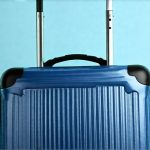The open road beckons with promises of adventure, scenic routes, and freedom. Yet, for many long-distance drivers, this idyllic picture is often punctuated by a rather inconvenient – and sometimes anxiety-inducing – physiological reality: the sudden and persistent urge to urinate. This isn’t merely a matter of discomfort; it’s a common experience that can impact concentration, safety, and overall enjoyment of the journey. While often dismissed as an unavoidable part of travel, understanding why this happens, how to manage it proactively, and when it might signal something more significant is crucial for any driver who frequently logs long miles.
The urge to urinate while driving isn’t necessarily indicative of a medical problem; in most cases, it’s a perfectly normal consequence of several factors converging during travel. These include increased fluid intake (often necessary to stay alert and hydrated), prolonged sitting which can compress the bladder, psychological stress related to the drive itself, and even the monotony that can lead to heightened awareness of bodily sensations. The challenge lies in navigating these urges safely and efficiently, without compromising the journey or, more importantly, road safety. Ignoring the issue isn’t a solution; it requires a thoughtful approach combining preparation, mindful driving habits, and understanding your own body’s signals.
Understanding the Physiology & Contributing Factors
The sensation of needing to urinate is complex, involving both physical and neurological processes. Your bladder stretches as it fills with urine, triggering stretch receptors that send signals to the brain. The brain then interprets these signals as urgency, prompting you to find a restroom. However, this process isn’t simply about volume; psychological factors play a significant role too. Anticipation of long stretches without facilities, anxiety about traffic delays, or even just focusing intently on driving can all heighten your awareness of bladder fullness and increase the perceived urgency.
Several specific elements contribute to increased urination frequency during drives. Firstly, hydration levels – while essential for alertness – naturally lead to more urine production. Secondly, prolonged sitting restricts blood flow to the pelvic floor muscles which support the bladder, potentially reducing its capacity. This is compounded by posture; slouching puts additional pressure on the bladder. Finally, caffeine and alcohol consumption are well-known diuretics, accelerating fluid loss and increasing urination frequency. Even seemingly innocuous drinks like sparkling water can have a similar effect due to carbonation.
It’s important to remember that individual physiological differences significantly impact bladder capacity and sensitivity. Some people naturally have smaller bladders or more sensitive nerve endings, making them more prone to frequent urges. Age also plays a role; as we age, the bladder muscles may weaken and lose elasticity, leading to increased frequency. Recognizing these personal factors is key to developing a tailored strategy for managing this issue on long drives.
Strategies for Proactive Management
The best approach isn’t reacting to the urge when it hits, but proactively minimizing its occurrence in the first place. This starts before you even get behind the wheel. Careful pre-trip planning is paramount. Map out potential rest stops along your route – don’t rely on vague estimations of how far apart facilities are. Use apps or websites specifically designed to locate restrooms and understand their amenities (cleanliness, accessibility).
Next, consider your fluid intake. Avoid excessive consumption of diuretics like coffee, tea, and alcohol in the hours leading up to and during the drive. Instead, prioritize consistent hydration with water, but sip it gradually rather than gulping large amounts at once. This helps maintain a steady level of hydration without overwhelming the bladder. Finally, be mindful of your pre-drive habits. Empty your bladder completely before starting your journey – don’t assume “just enough” will suffice.
Managing Urgency While Driving Safely
When the urge to urinate inevitably arises while driving, safety is paramount. Never attempt to relieve yourself while operating a vehicle. Pulling over safely is the only acceptable course of action. Find a designated rest area, parking lot, or wide shoulder (where legal and safe) before stopping. Use your turn signals well in advance to indicate your intention to pull over.
Once stopped, assess the situation. If you feel an overwhelming urge that threatens to distract you significantly, even a brief stop may be necessary. However, if it’s more manageable, consider delaying for a short distance until you reach a planned rest stop. This minimizes disruption and ensures you’re not stopping in a hazardous location. Remember, distraction is as dangerous as impairment while driving.
When to Seek Medical Advice
While frequent urination during long drives is often normal, there are circumstances where it warrants medical attention. If you experience sudden changes in your urinary habits – such as increased frequency even when not driving, pain or burning sensation during urination, blood in your urine, difficulty starting or stopping urination, or a feeling of incomplete bladder emptying – consult a doctor promptly. These could be signs of an underlying medical condition such as:
- Urinary Tract Infection (UTI)
- Overactive Bladder
- Prostate issues (in men)
- Diabetes
- Interstitial Cystitis
These conditions require proper diagnosis and treatment, which can significantly improve your overall health and reduce the likelihood of urinary problems impacting your driving experience. Don’t self-diagnose; a medical professional is best equipped to determine the cause and recommend appropriate interventions. Prioritizing your health isn’t just beneficial for your well-being—it also ensures you remain a safe and responsible driver on the open road.





















